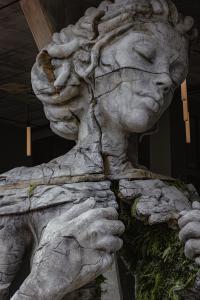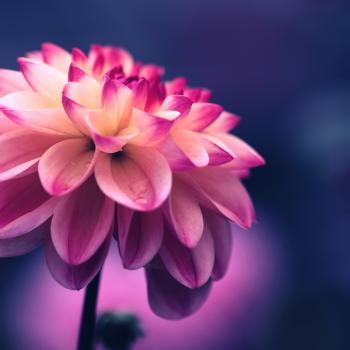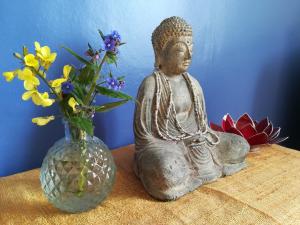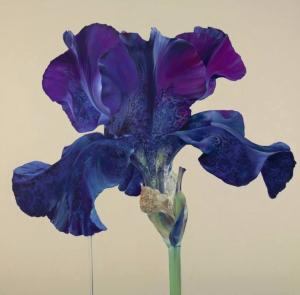
There is a Japanese word in the tradition of Pure Land Buddhism, ‘bombu’, which I am deeply fond of. I think it offers a clue to why we don’t always approach ourselves or the world with more gentleness. It says something about being broken, and maybe beautiful. Before I tell you what it means, I’ll tell you a story…
I spent many years with a kind man who drank too much. As his drinking progressed I struggled more and more, and in desperation I went to a group for people affected by other people’s drinking. At my first meeting I waited patiently for the advice on how I could get him to stop drinking. Instead I heard people speaking about their own feelings and fallibilities. They seemed to be suggesting that the problem was with me, rather than with my partner.
This was not an idea I welcomed. He was the sick one – I was the brave, patient, noble one who was holding it all together! And yet, as I continued to listen, I identified with group members who spoke about needing to control others, or feel ‘better than’ others, in order to feel okay about themselves. I recognised how I had been colluding with the drinking, and making choices that meant I was handing my freedom over to him. To my surprise, I began to enjoy my life again – regardless of whether my partner was drinking or not.
It was being held by the kindness of the group that allowed me to make these realisations about myself. It wasn’t easy to acknowledge how broken I was – but once I had, I could approach all these parts of me with gentleness and begin to heal them.
Foolish beings of wayward passion
‘Bombu’ means ‘foolish beings of wayward passions’, and in Pure Land Buddhism it is suggested that we are all bombu, and that we bob around like corks on the waves of our greed, hate and delusion. In the group, I discovered the depths of my bombu nature. I discovered my brokenness. Most of us would rather not see this about ourselves. We have different strategies for avoiding our vulnerabilities and failings. Some of us are dominated by parts that distract or comfort us, with alcohol, food, overwork, or social media. Some of us are more dominated by managing parts that criticise us and others, fill our schedules to the brim, and turn us into the kind of ‘functioning’ person our society likes to reward. Most of us have some of each.
By their very nature, these protective parts of us need to be rigid. They force us to spend long hours at our prestigious job, whether we want to or not. They compel us to binge on sugar or Youtube, regardless of the consequences. They push us and push us and they think that they are keeping us safe.
They are keeping us safe – from the knowledge that we are fragile, contingent beings – from the knowledge that we are bombu. These parts of us are afraid that, if they stop pushing us, we would collapse into depression or be overwhelmed by anxiety, self-disgust or shame. In Pure Land Buddhism, this is where the Buddha comes in.
The ugliest parts of ourselves
We are bombu beings, and there is such a thing as a Buddha (or Buddha energy) which exemplifies wisdom, forgiveness and compassion. When we deeply acknowledge our bombu nature, it somehow points us towards this infinite love, that exists in the Universe and that is always reaching out to us. It was the same in my group. When I showed the ugliest parts of myself, I found that the group accepted me, just as I was. Just as I am.
When we are rigid, it is because we are afraid. When we can begin to bring gentleness to our own rigidness, and to the rigidness of others, we begin to see things we’d rather not see. That’s okay, because the Buddha has already seen them, and understands why we are the way we are. Also, it can be scary. We need to go slowly and carefully, or we risk mirroring the rigid, pushing energy we’re asking to relax. We can go gently, unveiling more of our brokenness, and the brokenness of others. As we truly see it, we’ll be astonished at how beautiful it is.












